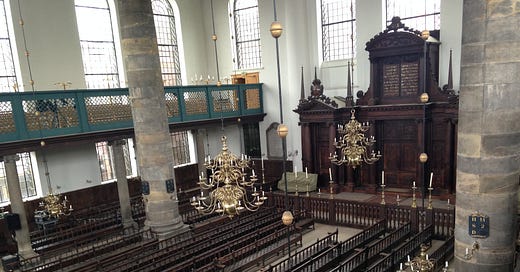Last week’s antisemitic attack in Amsterdam was shocking for several reasons. Not just for the violence involved, nor because it was the first major antisemitic attack on European soil since the 1940s, nor indeed because of the degree of organisation and planning that went into it. The attack was shocking because it took place in Amsterdam, a city that played a defining and indispensable role in the Jewish struggle for civil rights; one that sees itself as the city of Anne Frank.
Anne Frank is the name that comes to mind for most people when they think about the Jewish experience in Amsterdam. The diary she wrote while in hiding is one of the world’s best known books. The Anne Frank House, where, at the age of 13 she and seven others were hidden from the Nazis for over 2 years, until they were finally betrayed, is an essential destination for any visitor to Amsterdam, Jewish or not. The family who hid them, at great personal risk, were not Jewish. Yet they were only one family among many in Amsterdam who did incredible things to save Jews.
When I was a kid I was taught by a frail rabbi, a youngish, nervous man who looked far older than his years. Someone, now long forgotten, had helped him to flee Amsterdam and furnished him with a rickety old rowing boat. He rowed across the North Sea, with his mother, a distance of 200 miles, day and night, storm and calm, vulnerable to both the elements and hostile craft. He wasn’t religious but he vowed that if they arrived in England safely he would study Judaism and become a rabbi. The journey broke him, accounting for his frail, elderly looks, but they arrived safely, and he kept his vow. He wouldn’t have survived if he hadn’t had help in Amsterdam. And his story is just one among many.
The flourishing of Jewish life in Amsterdam began in the late 16th century, after the Dutch revolt against Spanish rule. The revolt led to the creation of the Dutch Republic, a country very different from anywhere else in Europe, where the idea of religious tolerance, advocated by people like Réné Descartes and Hugo Grotius, first took root. Freedom of religion and tolerance of other people’s views was a defining quality of the Dutch Republic and still serves as a source of national pride in the Netherlands- despite the growing popularity of far-right politicians. It is the long Dutch tradition of tolerance that makes the antisemitic attacks in Amsterdam last week even more distressing.



